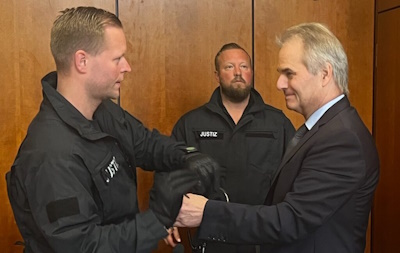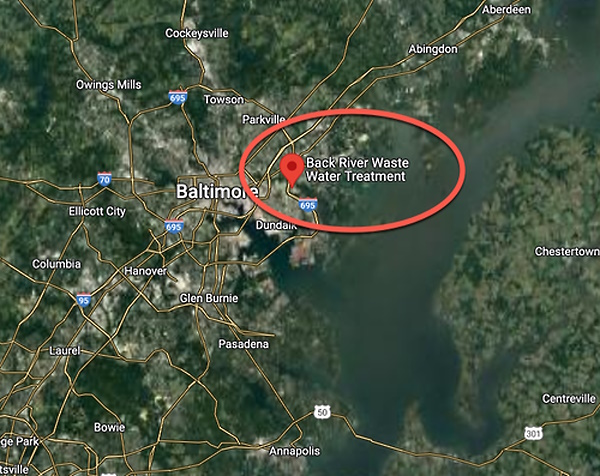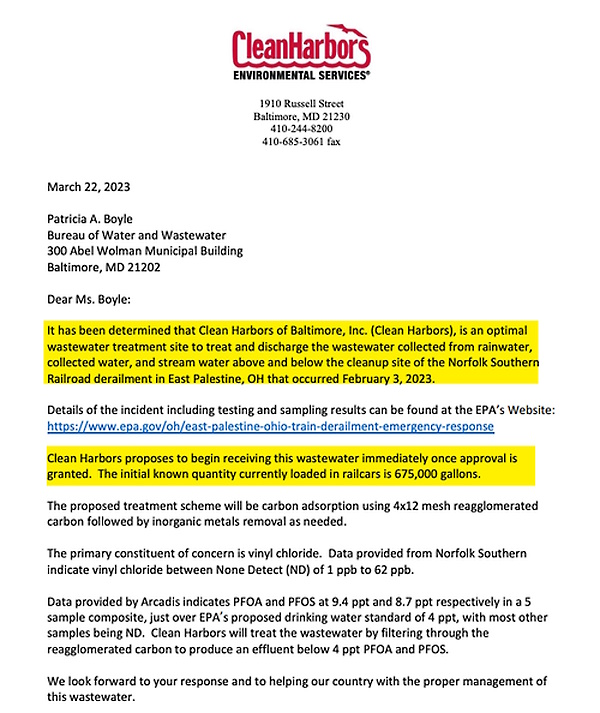In my personal search for clarity about the confusing (deliberately) and complicated legal maze of control over those of us who were born into or naturalized into United States citizenship, I recently came upon the website “National Status – Repatriating Freedom Seekers”.
Going through their various resources and taking their course has made many things clear and has provided me with specific steps to take, as well as coherent instructions and documentation.
I’m sharing it here for those who have been doing a similar search through the volumes of videos, books, websites and documents out there, only to find themselves overwhelmed with bits and pieces of the puzzle that don’t quite fit together.
From the National Status Introduction page:
“When you were born on American soil, you were born a National. However through legal presumption you are assumed to be a US citizen, which is completely and personally subject to the Federal Government.
“This control is feudal in nature. As a US citizen you are property of the federal government. As property your labor is collateralized, bonded, and traded.
“However, the nature of your servitude is voluntary. It has to be, because our 13th amendment forbids involuntary servitude. It’s voluntary however only because you didn’t know that you had another choice.
“Our goal is to make you aware of this choice and, if you so choose, volunteer out.”
From the National Status Forums page:
“This website was created by an independent group of nationals who have repatriated themselves from the servitude of U.S. Citizenship. It serves as a resource and a platform for anyone interested in beginning their journey to true freedom as a national. Please share with other freedom seekers.
“DISCLAIMER: The information shared on this website is free and for educational purposes only. We do not sell anything or offer any tax, political or legal advice. Use at your own discretion.”
Through the National Status website, I was led to the video that is shared below. A transcript has been prepared for your study and reference.
As always, information shared at Truth Comes to Light is done in the spirit of conversation. This is not legal advice, nor is it any other type of advice or call to action. All of these decisions are serious in nature and require study, dedicated consideration, and personal choice.
Thank you to National Status for offering all of these materials at no cost to the public. Compiling this information and presenting in a way that we all can understand requires a great amount of time, talent, and work (not to mention their personal years of research, study, trial and error), in addition to financial costs of maintaining a website. They have created a great resource for us all.
~ Kathleen

U.S. National / State Citizen Comprehensive Guide (Non Citizen National)
by U.S. National Guide
Original video is found at USA National Guide YouTube channel. Find mirrored copies at BitChute, Odysee, & Brighteon.
Message from video creator as found below the original YouTube video.
This video is a comprehensive, beginner’s guide to U.S. Nationality, State Citizenship, and how U.S. Citizens are property. Below are timestamps to sections of the video, as well as all the links referenced.
CORRECTIONS: Civil Rights are mistakenly called constitutional rights as they are given by the constitution (14th amendment), but are totally opposite of God-given Rights that are Constitutionally PROTECTED.
The affidavit should say the city and state in which you’re domiciled, not Los Angeles California.
A W-4v can be sent instead of a W-4, but some employers won’t accept it. Fill out numbers 1-3 on the W-4v normally (put the SSN). Leave 5 and 6 blank unless applicable. Check 7.
If you need to fill out a W-4, do not fill it out as I described in the video. Instead, as described in the form’s instructions on how to file as exempt, write “Exempt” under 4c, and other only fill out steps 1a, 1b, and 5. Always put your zip code and SSN in brackets.
When filling out a W-4 or W-4v add “Done in Good Faith” at the end of your signature.
For state taxes there are equivalent forms called “Employee’s Withholding Allowance Certificate” for each state.
When rescinding a ticket you can also include “REFUSED” and “CEASE AND DESIST.”
Roger Sayles Radio Ranch:
http://thematrixdocs.com/
National USA Telegram Channel:
https://t.me/usnational
Certificates of Non Citizen Nationality:
https://travel.state.gov/content/travel/en/legal/travel-legal-considerations/us-citizenship/Certificates-Non-Citizen-Nationality.html
American Samoan Citizenship Case:
https://www.axios.com/2021/06/16/american-samoa-birthright-citizenship-ruling
Legal Word Games: https://www.youtube.com/watch?v=tu1CcGbDQhw&t=0s
Voter Registration Cancellations:
https://www.eac.gov/voters/voter-registration-cancellations
Internal Revenue Code:
https://www.law.cornell.edu/cfr/text/26/1.1-1
Possible Sales Tax Exemption:
https://www.youtube.com/watch?v=p9dDo5a6sSQ&t=0s
Templates (copy the file rather than requesting to edit):
https://drive.google.com/drive/folders/1a1qJyiSKbIDdXuOo8fGUwHm5aG4rKGP3
Private License Plates:
Premade (Cars and Motorcycles) – https://shop.freedomfromgovernment.org/
Custom (Cars) – https://www.buildasign.com/license-plates
Custom (All Kinds of Vehicles) –
www.asmartblonde.com/categories/design-your-own-custom-license-plate-tag-or-sign.html
James C Lovett:
https://www.youtube.com/c/JamesCLovett
Social Security Status Correction:
https://www.youtube.com/watch?v=euQpwyRzyyc
Timestamps:
00:00 – Intro
02:09 – History
05:19 – 13th Amendment
06:13 – 14th Amendment
08:11 – Court Rulings
11:10 – Rights
14:10 – Change in Government
17:02 – U.S. Citizens are Property
20:03 – Immigration and Nationality Act
23:11 – How You Agreed
26:55 – Privileges Nationals Don’t Have
27:17 – Taxes, Codes, and Mandates
31:40 – UCC 1-308
33:26 – How To
48:09 – Passport
50:43 – Police and Driving
54:15 – Optional Steps
55:15 – Outro
Connect with USA National Guide
Please link to the original YouTube version to check for any updates, to share your comments with the author/creator of the video, and to read the comments of other viewers.
I’m sure you’ve wondered how the government is able to chip away at our Constitutional rights. Despite all the checks and balances our founding fathers put in. Since early 2020, that question has been asked more than ever before.
That question can only be answered with another question. Did you know that all U.S. citizens have dual citizenship?
Today, using verifiable factual information as well as decades of experience and research, you are going to discover how United States citizens unknowingly volunteered to be the property of the United States government.
More importantly, you are going to learn how to stop volunteering.
Welcome to a comprehensive guide to becoming a state citizen, commonly known as a U.S. national and mistakenly known as a non-citizen national.
Before we can begin, this is for educational purposes only. Nothing in this video is a call to action. I am not telling or suggesting anyone does anything, nor am I responsible for anyone else’s actions. I am not discussing the topic of sovereign citizens or private citizens as I stray clear from misinformation and disinformation.
Credit must be given to Roger Sayles, the host of Radio Ranch, as most of this information is from his teachings. Roger has been so gracious as to share this with the world and to spend two hours every weekday answering people’s questions on his radio show. You can find information on how to listen or call into his radio show in the description. [http://thematrixdocs.com/]
Anyone who has any questions or comments on what I’ve discussed, feel free to leave a comment below [see original YouTube video to leave your comment] and if it goes beyond the scope of this video, be sure to ask Roger on his show. Also, the U.S. National Telegram group is linked down below as well.[https://t.me/usnational]
When the united states of America was founded, it was the only country in recorded human history, possibly other than the Roman Republic, that recognized and protected God-given, inalienable rights to freedom. The fatal flaw was the acceptance of slavery.
You will see shortly how the Civil War, which we are told ended slavery, was used to enslave all Americans. But first we must discuss what it was like to be a free American before the war.
As most know, the Constitution for the United States of America secured citizens of the states inalienable rights given by the Creator. All government and legal action had to abide by the rules set out in the Constitution and still does, including Common Law, which the founding fathers adopted from England. Common Law means that when a supreme or appellate court makes a ruling on how to interpret a law, that decision is applied across the state or country depending on the jurisdiction of that court.
Jurisdiction is another concept that is important to understand. Jurisdiction is defined as the power to make decisions. For example, the United States Supreme Court only has that power to make decisions for citizens and residents of the United States. They cannot decide what happens to a Brazilian citizen residing in Brazil.
Most who have read and understand the system of government set up by the Constitution are amazed by how just and free it is. So how is it possible that it has corrupted into the system you see today? Is this system unconstitutional?
Fortunately, it is constitutional, and that’s why the courts have allowed it to continue to play out. I say fortunately because that shows the system still works. They must abide by its rules, and that must mean that there is a way out. So let’s find out how.
In some interpretations, the Civil War was not a war over slavery like many have been led to believe. It was a war over states rights.
I’m sure some of you instantly had alarm bells ringing when I made that statement. Due to media propaganda perpetrated by the federal government (one could look into Operation Mockingbird) many immediately associate that interpretation with racism and slavery, as if the northerners were altruistic, loving people that were fed up with the racist Democrats in the south. They then spread the lie that the parties switched, to explain why the Republicans are now the racist ones.
The harsh reality is the Civil War had much less to do with slavery than we’re led to believe. Many politicians from both sides were and still are racist, and they’ve worked together to enslave all Americans regardless of skin color.
After the Civil War, the 13th and the 14th Amendments were instituted. The 13th Amendment to the Constitution abolished slavery by stating,
“Neither slavery nor involuntary servitude, except as a punishment for crime whereof the party shall have been duly convicted, shall exist within the United States or any place subject to their jurisdiction.”
The word ‘their’ being plural as the jurisdiction is of the several states.
Obviously voluntary servitude is omitted. A free person would have every right to serve whatever or whomever they please. That also means that you would have to be able to stop volunteering for it to remain constitutional.
Before we discover how to stop volunteering to be the slaves of the United States government, let’s see how we were tricked into doing so in the first place.
The 14th Amendment allowed all people born in the United States to become citizens by stating,
“All persons born or naturalized in the United States and subject to the jurisdiction thereof, are citizens of the United States and of the State wherein they reside.”
There are three important things to notice in that statement.
First, this amendment is referring to a single jurisdiction, as it’s referring to the level of a singular federal government. This is distinctly different from the reference to several jurisdictions in the 13th Amendment. The importance of this will become clear shortly.
Second, it says AND subject to the jurisdiction thereof, not ARE subject to the jurisdiction thereof — meaning people can be born here or naturalized without being subject to the United States federal government’s jurisdiction.
How that can be lies in the rest of the sentence where it says,
“…citizens of the United States AND of the State wherein they reside.”
What happened here is the creation of a new class of citizenship. Before the 14th Amendment, a citizen of one of the several states was automatically a citizen of the united states of America. There was no such thing as a citizen of the United States federal government. People born in Washington, D.C. were not citizens. Again, the only status was a state citizen.
To understand this dual citizenship, let’s read some court rulings.
If at any point you’d like to ponder or read these rulings for yourself, feel free to pause, they will all be on screen.
The ruling on Tashiro v. Jordan [201 Cal. 236 (1927)] states,
“That there is a citizenship of the United States and a citizenship of a state,…”
The ruling on Kitchens v. Steele [112 F. Supp. 383] states,
” citizen of the United States, is a citizen of the federal government…”
The ruling on Gardina v. Board of Registrars of Jefferson County [160 Ala. 155; 48 So. 788 (1909)] states,
“There are then, under our republican form of government, two classes of citizens, one of the United States and one of the state.”
The ruling on U.S. v. Anthony [24 Fed. 829 (1873)] states,
“The term resident and citizen of the United States is distinguished from a Citizen of one of the several states, in that the former is a special class of citizen created by Congress.”
Remember that term resident. It’ll be important later. I will use the term U.S. Citizen, Federal Citizen and 14th Amendment Citizen interchangeably, as you can now see that they are one and the same.
It is evident then that there is a federal and a state citizenship. So can someone be one without being the other?
These next court rulings will make that clear.
The ruling on McDonel v. The State [90 Ind. 320 (1883)] says,
“…he was not a citizen of the United States, he was a citizen and a voter of the State,…”
“One may be a citizen of a State and yet not a citizen of the United States.”
The same U.S. v. Anthony case [24 Fed. Cas. 829, 830] from earlier, also stated in the ruling,
“…an individual can be a Citizen of one of the several states without being a citizen of the United States.”
Crosse v. The Bd. of Supervisors [221 A.2d 431 (1966) ruled that,
“Both before and after the Fourteenth Amendment to the federal Constitution, it has not been necessary for a person to be a citizen of the United States in order to be a citizen of his state.”
I can hear you thinking, ‘Okay, okay, I believe you. What does it matter though? Do I want to be solely a state citizen and not a citizen of the federal government? What’s the difference?’
To answer those questions, we must read some far more interesting court rulings. This is where it gets juicy.
The ruling on Belmont v. Town of Gulfport [122 S0. 10] stated,
“Taxpayers are not State Citizens.”
U.S. v. Slater [545 Fed. Supp. 179, 182 (1982)] decided in its ruling,
“Unless the defendant can prove he is not a citizen of the United States, the IRS has the right to inquire and determine a tax liability.”
Before I get into why a state citizen doesn’t have to pay taxes, you must understand the difference in the rights of a federal and state citizen.
In the Supreme Court ruling on Jones v. Temmer [89 F.Supp 1226], it was decided,
“The privileges and immunities clause of the 14th Amendment protects very few rights because it neither incorporates the Bill of Rights nor protects all rights of individual citizens. Instead, this provision protects only those rights peculiar to being a citizen of the federal government. It does not protect those rights which relate to state citizenship.”
You heard that right. The Bill of Rights is not protected for U.S. citizens, for 14th Amendment federal citizens.
Want more proof?
In the case of Hague v. CIO [307 US 496, 520], it was decided,
“…the first eight amendments have uniformly been held not to be protected from state action by the privileges and immunities clause of the 14th Amendment.”
In the ruling on the case of Twining v. New Jersey [211 US 78, 98-99], it was decided,
“The right to trial by jury and civil cases, guaranteed by the 7th Amendment… and the right to bear arms guaranteed by the 2nd Amendment… have been distinctly held not to be privileges and immunities of citizens of the United States guaranteed by the 14th Amendment… and in effect the same decision was made in respect of the guarantee against prosecution except by indictment of a grand jury contained in the 5th Amendment… and in respect of the right to be confronted with witnesses contained in the 6th Amendment… it was held that the indictment, made indispensable by the 5th Amendment and trial by jury guaranteed by the 6th Amendment, were not privileges and immunities of citizens of the United States, as those words were used in the 14th Amendment. We conclude, therefore, that the exemption from compulsory self-incrimination is not a privilege or immunity of National [Federal] citizenship guaranteed by this clause of the 14th Amendment.”
That is absolutely shocking. What rights do U.S. Citizens have then?
Well, the Supreme Court ruling on U.S. v. Valentine [288 F. Supp 957] will tell us. It states,
“The only absolute and unqualified right of a United States citizen is to residence within the territorial boundaries of the United States.”
That’s it. That is the one right of a United States citizen. All else is a privilege that can be taken away at any time.
It’s starting to make sense how they’re able to do all that we are seeing happen in the world, how they can punish us for victimless crimes and tax us on everything we own.
What has happened here is that we’ve switched from the jurisdiction of constitutional law to the jurisdiction of commercial law, the law of merchants.
Shortly after the passing of the 14th Amendment, the United States incorporated. When you hear United States, that is the corporation. When you hear united states of America, that is the original country.
Notice that the words united and states are not capitalized because they are describing the states rather than referring to a specific entity because the jurisdiction was of multiple states.
More capitalization is often a sign of corporate jurisdiction as that is a single entity. It’s a proper noun.
They also created this change on a state level. All the state governments, like California state, for example, were incorporated and this time they began with an uppercase S for State of, like in State of California, as opposed to California state, where the state was lowercase.
I bet you didn’t know that the State of California is not based in Sacramento, like California state was. The State of California is based in Washington, DC, along with all other 49 ‘state of’ governments.
The original governments are still there. They are just overlaid by this corporation.
All the original government positions still exist. They are just empty.
After creating these changes, the United States gave the former slaves US citizenship, which guaranteed them civil rights rather than constitutional rights.
As you’ve seen, there is only one absolute right US Citizens have access to. The rest are privileges. All civil rights are, are privileges. They slowly made every new child a federal citizen through their birth certificates until every state citizen was also a federal citizen.
You just saw with the names of the states and country that the capital letters are often a sign of the corporate entity.
Ever wondered why names are in all capital letters on a birth certificate or a driver’s license or a social security number?
So why would the government want to make everyone a United States Citizen as well? Let’s read the last two court cases for the answer.
In the ruling on Wheeling Steel Corp. v. Fox [298 U.S. 193, 80 L.Ed. 1143, 56 S.Ct. 773], it was stated,
“Therefore, the U.S. citizens residing in one of the states of the union, are classified as property and franchises of the federal government as an individual entity.”
In the ruling on Hendrick v. Maryland [S.C. Reporter’s Rd. 610-625. (1914)], it was decided,
“A ‘US Citizen’ upon leaving the District of Columbia becomes involved in ‘interstate commerce,’ as a ‘resident’ does not have the common law right to travel, of a Citizen of one of the several states.”
You heard that right, U.S. Citizens are property and if they’re outside of DC, that property is an interstate commerce.
Of course, it’s all about power and money. They can do just about whatever they want to U.S. Citizens other than infringe on their sole right to residing here.
You’ve probably heard the statement, property can’t own property. That’s why they can tax U.S. Citizens on all their income and property. They don’t really own it. Taxes are like their rent and interest.
That sure gives them a lot of money, as does all the debt they’ve built up.
I’m sure you’ve wondered who the government is $30 trillion in debt to. Some of you know it’s the Federal Reserve Bank, which truly isn’t a government agency.
What sort of bank gives out loans without collateral? Well, it turns out, U.S. Citizens, since they are property, are the collateral.
That is why our birth certificates look like warehouse receipts. That is why our birth certificates and our driver’s licenses and our social security cards all have bonds against them.
If a state citizen is having a child, it is highly recommended to not sign their birth certificate and establish their nationality in other ways. But I’m getting way ahead of myself.
How could someone who is already a U.S. Citizen get out of this? Can people reclaim the rights and stop paying taxes?
I said it’s constitutional, so people must be able to just stop volunteering, right? Well that’s right.
But to understand how you can get out, how anyone could get out, you must understand the three statuses that exist in this country and be wary of enormous mistakes some people have made.
They’ve done their best to make this as tricky and confusing as possible and to take that further, they had to add in a third status and change the name of the original one.
With the Immigration and Nationality Act, or INA, what used to be called a state citizen or a citizen of the united states of America was covered up by the term U.S. National. I will use these three terms interchangeably, State Citizen, Citizen of the United States of America and U.S. National.
You’ve seen now that one can be a state citizen or U.S. National without being a U.S. Citizen, or one can be both a U.S. National and a U.S. Citizen. This and the third status was further described in the INA as referenced on the Department of State website in this article titled “Certificates of Non-Citizen Nationality”, the link to which is in the description below.
[https://travel.state.gov/content/travel/en/legal/travel-legal-considerations/us-citizenship/Certificates-Non-Citizen-Nationality.html]
The third [? second] paragraph states,
“As defined by the INA, all U.S. citizens are U.S. nationals but only a relatively small number of persons acquire U.S. nationality without becoming U.S. citizens.”
This further confirms that one can be a U.S. national, which was previously referred to as a state citizen, without being a U.S. Citizen. The third status is a non-citizen national, which this article explains. Such a person is not a citizen of one of the united states of America or of the United States Federal Corporation, yet is still considered a national. Currently, the only such people are the people of American Samoa and Swains Island. By not giving these people birthright citizenship, the government was able to claim that U.S. nationality only exists to preserve these indigenous cultures.
We all know how much the government cares about indigenous cultures here in America. This is so important to them that when the U.S. District Court for the District of Utah ruled in 2020 that American Samoans should be given U.S. citizenship by birthright, both the United States Federal Government and the American Samoan government contested the ruling within 24 hours. You can check the description for an article on where that case went.
[https://www.axios.com/2021/06/16/american-samoa-birthright-citizenship-ruling]
Using this third status to hide the original citizenship not only worked, as people believed that a national is an American Samoan, it also caused some problems for people attempting to become U.S. nationals. Some people mistakenly revoked both of their citizenships and chose to become a non-citizen national. By doing so, they lost their chance to reclaim their constitutional rights and had to either leave the country, go to American Samoa or apply for nationalization.
These are likely the horror stories you may have heard about becoming national. The words we use are very important. I advise avoiding making the mistake of giving up all citizenship.
Now that that’s clear, I can discuss the ways people have continued to affirm the false presumption that was assigned to them at birth that they are U.S. Citizens.
The main way they’ve done this is by asking specific questions anytime U.S. Citizens have gone to court, wanted a driver’s license, started a bank account, etc.
The first of which is: Are you a U.S. Citizen? Which we now know means are you a former slave claiming civil rights or a state citizen giving up their constitutional rights to claim civil rights? Phrased like that, I’m sure just about everyone would answer no.
When asked where they are a citizen of, a U.S. national would say, ‘of the united states of America’, as they still are a citizen of the united states of America. They are just no longer a citizen of the United States incorporated.
The second question often asked is: Are you a resident? This is another word game. Most normally would think, resident is a geographical term, that it’s about where you reside. In this context though, it has a different meaning.
A resident was a term created to give the federal government jurisdiction over the former slaves in order to protect them from their state by having them just be residents in that state. So now we see that the question means are you residing in one of the several states and seeking the federal government’s protection from that state? Phrased like that, again, almost no one would answer yes to that question.
So when asked where they are a resident of, a U.S. national would avoid using the term ‘resident’ altogether, or ‘reside’ altogether, and say something along the lines of, ‘I’m currently living in this state or on this state’ really.
Another trick they use is asking you if you are ‘that person’ or ‘a person’. [Are you that/a/the person…?] This is mostly used in court cases.
Obviously you are a person and you will get in a lot of trouble if you say you are not because you are. But in this case, this is a legal term referring to United States property.
A U.S. national would say, I am not THAT person. The words we use are very important. You must know their word games to stop playing their game. The common definition to words are very different to those they use, which are found in Black’s Law Dictionary.
If you are choosing to get a copy of Black’s Law Dictionary, I highly recommend one of the first four versions, as a lot of the definitions have been altered in later versions.
By setting this system up like this, they have convinced people to agree to giving up their rights and becoming property by choosing U.S. Citizenship over their state citizenship.
To learn more of their word games, feel free to watch the video I’ve linked in the description.
[Black’s Law Dictionary why you need to learn their legalise in order to play the game! by James C. Lovett – https://www.youtube.com/watch?v=tu1CcGbDQhw]
The other primary way they legitimize the false presumption is through voting.
State citizens that are not also federal citizens do not have access to the privilege of running or voting in federal elections. Voting in federal elections is agreeing to the federal corporate jurisdiction. Below is a link to cancel voter registration.
[https://www.eac.gov/voters/voter-registration-cancellations]
I’ve heard nationals can become an elector rather than a voter, though I know nothing about this. If you’d like more information on that, Roger, the host of Radio Ranch, or someone on his show might know something about that.
Anyway, this topic brings up the question. Are there any other privileges that U.S. Citizens have that U.S. Nationals don’t? Other than voting, the primary privileges are financial incentives given out by the federal government, which are truly trivial compared to how much U.S. Citizens pay in taxes.
And that leads us perfectly to everyone’s favorite part. State citizens are not subject to the jurisdictional statements of codes or mandates, such as the United States Code or State Penal Codes. That does mean that nationals don’t need to register or get permits for their firearms. This is because the Penal Codes refer to ‘persons’, and we know now that nationals are not those persons.
As for the United States Code, the titles claim jurisdiction over U.S. citizens and residents.
Everyone’s favorite code, Title 26, Internal Revenue Code, has a little extra terminology in there. Let’s read it together to understand what taxes U.S. nationals are liable to pay. A link to this page is in the description.
[https://www.law.cornell.edu/cfr/text/26/1.1-1]
Title 26 states,
“Section 1 of the Code imposes an income tax on the income of every individual who is a citizen or resident of the United States and, to the extent provided by section 871(b) or 877(b), on the income of a nonresident alien individual.”
As you can see, non-resident, alien individuals are only liable to two sections of the income tax, which happen to be two incredibly irrelevant taxes that the average person will never pay.
But would a U.S. national be considered a non-resident alien? They certainly aren’t citizens or residents of the United States, so that covers the non-resident part. But what makes them alien? Well, if an alien is a citizen of a different country and nationals are citizens of the united states of America, which we now know to be a different country than the United States, then it seems U.S. nationals are non-resident aliens as far as the income tax is concerned. Therefore, the average state citizen is not liable to pay income tax.
So that clears up a huge portion of taxes, yet property, sales and corporate taxes remain. U.S. Citizens can be taxed on their property because they don’t truly own it, as property can’t own property.
Nationals have the ability to raise the patent to their land, which gives them the highest jurisdiction over it, making them exempt from taxes and from the need to follow building codes and to get permits. That is quite an in-depth subject, so I’ll leave it to the expert, Ron Gibson. Feel free to research his work, lectures and interviews if you’re interested. Though be careful in researching this, as there is a large amount of false information attempting to defame him and his work. Anyway, let’s move on to sales tax.
Some may be aware that companies are liable to pay sales tax, not individuals. The companies choose to add it on to the price at the point of sale in order to make their products look cheaper while browsing. Therefore, one usually can’t get out of sales tax, but anyone, regardless of if they’re a national, can request that the company pays the tax without adding it onto the price. They may not always do this, but it’s worth a try with larger purchases like a vehicle.
Finally, there are corporate taxes. Since corporations are part of the corporate system the U.S. has built on, they must pay taxes. Luckily, I’m sure there are ways that a state citizen business owner could raise their salary to the point that the business has no income to pay taxes on, and then they could use that money to reinvest into the business.
There is also the option of creating a private membership organization, also known as an unincorporated business. If you’re interested in that topic, further research into corporate taxes or unincorporated organizations is recommended.
So some may be wondering, if a national is no longer subject to that commercial law, how can they assign commercial contracts without giving up their rights? Is stating that you’re not a U.S. Citizen enough? They won’t even know what that is.
So there happens to be a part of the Uniform Commercial Code that will help us out here. This code can be used by both federal and state citizens.
UCC, meaning Uniform Commercial Code, 1-308 is a section of the Uniform Commercial Code that allows people to sign documents with the words ‘without prejudice’ in their signature to reserve their rights. It’s like saying, ‘My common law supersedes your commercial law’.
Some people choose to add ‘UCC 1-308’ or just ‘1-308’ to their signatures, usually if there isn’t much space, or sometimes they add it after words ‘without prejudice’ to be safe. The code also provides the option to sign the words ‘under duress’ or ‘U.D.’, meaning you’re being forced into signing. That one is best used in all dealings with law enforcement or any government employees or agencies, but we’ll get into that later.
It’s recommended to allow the signature to bleed into the statement in case anyone attempts to white it out.
Finally, what you’ve all been waiting for.
Now that we understand why a person would choose to do so and what the repercussions would be, it is time to learn how someone can rebut the false presumption of federal citizenship and regain access to constitutional rights.
Let’s quickly return to the page about non-citizen nationality from the Department of State’s website to see how.
[https://travel.state.gov/content/travel/en/legal/travel-legal-considerations/us-citizenship/Certificates-Non-Citizen-Nationality.html]
At the bottom of the page it is stated,
“Any person who becomes a citizen of the United States solely by virtue of the provisions in Section 301 [applying to those born in or residing in the Northern Mariana Islands] may within six months after the effective date of that Section or within six months after reaching the age of 18 years, whichever date is later, become a national but not a citizen of the United States by making a declaration under oath before any court established by the Constitution or laws of the United States or any other court of record in the Commonwealth in the form as follows “I _____ being duly sworn, hereby declare my intention to be a national but not a citizen of the United States.”
Now that’s crowded in a lot of unnecessary and misleading information, so I’ll simplify it for you. Any U.S. citizen can, with one sentence declaration put into their records, declare themselves a national but not a citizen of the United States.
That sentence can be altered or added to but must be changed carefully. Once again, if the terms ‘revoke my citizenship’ or anything similar is used, that could be misinterpreted as both citizenship statuses and that person would be left as a non-citizen national.
So now that we’ve seen how easy it is to get out, it’s become very clear why they’ve gone to such links to hide this and set up so many traps and word games on the way.
Let’s go through the process step by step.
This is being shared for educational purposes only. I am not encouraging anyone to do this. Your servitude is your choice. A collection of all the sample documents used will be linked in the description.
[download from this group of file: https://drive.google.com/drive/folders/1a1qJyiSKbIDdXuOo8fGUwHm5aG4rKGP3]
The first step is signing an affidavit in front of a notary. The notary confirms a person’s identity. Most people choose to have about five originals notarized as they will send out three of them and keep two for themselves, usually in separate locations in case one is destroyed, just to be safe.
Let’s go over a sample affidavit. Only that sentence referenced above is required but most choose to add more to make it entirely clear to the other organizations they’ll send this to which might not know that much about this topic.
This document is titled “Citizenship Evidence Affidavit”.
It states,
“I, [you’d put your full name here], being of sound mind and lawful age, do solemnly declare:
“1) The 1st clause of the 14th Amendment states: “All persons born or naturalized in the United States, and subject to the jurisdiction thereof, are citizens of the United States and the state wherein they reside.”.
“2) The 1st clause of the 14th Amendment does not say: “All persons born or naturalized in the United States, ‘are’ subject to the jurisdiction thereof….”
“3) The 1st clause of the 14th Amendment contains two requirements for United States citizenship: (a) that a person be born or naturalized in the United States and (b) that a person be subject to the jurisdiction of the United States.
“4) I am not restricted by the 14th Amendment, because I receive no protection from it and I have no reciprocal obligation to a 14th Amendment allegiance or sovereignty. Thus I owe no obedience to anyone under the 14th Amendment. United States v. Wong Kim Ark, 169 U.S. 649 (1898). Thus, I am not “subject to the jurisdiction thereof….”
The first three statements set up the argument and then that fourth one that we read has a case in it that is referenced that backs up the statement in the fourth section. Let’s continue.
“5) The Department of State document, “Certificates of Non-Citizen Nationality,” located at https://travel.state.gov/content/travel/en/legal/travel-legal-considerations/us-citizenship/Certificates-Non-Citizen-Nationality.html says — in part — in the 3rd paragraph: “Section 101(a)(21) of the INA defines the term ‘national’ as ‘a person owing permanent allegiance to a state.’ Section 101(a)(22) of the INA provides that the term ‘national of the United States’ includes all U.S. citizens as well as persons who, though not citizens of the United States, owe permanent allegiance to the United States (non-citizen nationals).” “
“6) I, hereby, declare that I am a national but not a citizen of the United States.”
So number five proves the existence of the national status. And then that status is declared in number six. Let’s continue.
“7) This Affidavit is submitted to legally and lawfully rebut the fraudulent legal presumption, that I am a “citizen of the United States” under the scope and purview of the 14th Amendment’s Federal citizenship and that such Federal citizenship grants me “civil rights”.
“8) I am “non resident” to the “residency” of the 14th Amendment and “alien” to the “citizenship” thereof; therefore I am not subject to the jurisdictional statements of the United States Code.
“9) As the tax imposed in 26 U.S.C. 1, pursuant to 26 C.F.R. 1.1-1 is on “citizens” and “residents” as contemplated in the 14th Amendment, it is not applicable to me, as I am neither a “citizen” nor a “resident”.
a. Notwithstanding the fact that I may have, previously, filed U.S. Individual Income Tax Returns, such filings were done by mistake as I was unaware that these filings were mandated only for citizens and residents of the United States as contemplated by the 14th Amendment.
“10) Furthermore, I am not a “resident” of any state under the 14th Amendment and hereby publicly disavow any contract, form, agreement, application, certificate, license, permit, or other document that I or any other person may have signed expressly or by acquiescence that would grant me any privileges and thereby ascribe to me rights and duties under a substantive system of law other than the Constitutional Contract of 1787 for the united states of America and of the constitutions for the several states of the Union, exclusive of the 14th Amendment.
“11) I reiterate that I have made the above determinations and made this declaration under no duress, coercion, promise of reward or gain, or undue influence and of my own free will, with no mental reservation and with no intent to evade any legal duty under the laws of the United States or any of the several states.
“12) At any time, I reserve the right to amend and correct wherever necessary or to rescind and revoke this document.
This line allows fixing the affidavit or even changing the status back if one misses being the property of the United States. It was Benjamin Franklin who said, those who would give up essential liberty to purchase a little temporary safety deserve neither liberty nor safety. Let’s continue.
“13) I invite any individual who has reason to believe that I am in error in my facts and conclusions above to file an affidavit stating the contrary facts and conclusions, signed under penalty of perjury before a person authorized by law to administer and witness an oath.”
This line is important to understand. To disagree with the affidavit, they must also sign an affidavit under penalty of perjury. Since everything in it is factually true, they will never do that unless they want to go to court. Finally it states,
“I declare under penalty of perjury, under the laws of the United States of America, that the foregoing is true and correct.”
Once the notary instructs to do so, one would then sign this document, print their name at the bottom and add the date. It is not necessary to sign this one without prejudice as it is not a contract with another party but can be done anyway just in case.
On the back, there is a California jurat for the notary to fill out. How each state handles jurats and notarized documents may differ so that could require more research for other states.
It is important to print it double-sided to assure the proof of notarization stays with the document.
Once that is complete, one would mail out an original copy of the affidavit, one of their original five, to the Department of State or to the Secretary of State themself, to put them on notice of the new status.
The Department of State handles citizenship, as they are the one who hands out passports. Putting them on notice is most important as they have the highest government jurisdiction over citizenship. Most mail this out with a certified return receipt. This will require them to mail back signed proof they have received the letter.
In the package would also be a cover letter, not stapled on.
Sending the affidavit with just a cover letter is considered sending it cold or naked. They cannot respond to a naked affidavit with anything other than their own affidavit, which we discussed why they won’t do. Therefore, this is the ideal start, so it’s already on file and all future notices or applications must be accepted because the status has already been changed.
Getting nothing in response but a return receipt is a sign that everything was done right, as they have nothing left to say. Here is a sample cover letter.

The highlighted parts are to be edited for each individual. An important part to point out is the statement,
“Notice to the principal is notice to the agent. Notice to the agent is notice to the principal.”
This essentially means that notifying the head of the department is notice to all of the employees and notifying an employee is notice to the head of the department.
Another important thing to point out is at the bottom where it says to add a national passport number or social security number. This is optional but will make the process much faster and will be important if you have a very common name so they can identify you. The passport number can be from an expired passport and I would imagine the passport number would be ideal for every agency other than the IRS who would likely prefer social security numbers.
The IRS is put on notice in a very similar way. Once the tracking number confirms the department of state has received the notice, one can proceed to noticing the IRS and other agencies.
The cover letter and package would be addressed to the IRS commissioner and cc’d to the Department of Treasury and franchise tax board of a state. Some states allow other states to handle collecting federal taxes, so research is required.
It is recommended to send the commissioner one of the original five affidavits and to give the Department of Treasury and franchise tax board a photocopy which would be double sided as well.
Here is a sample of the cover letter.

Notice that it says,
“Legal lawful notice. Not to be construed as a filing.”
This part is very important which is why it is highlighted. It is not meant to be edited like the other highlighted portions.
The IRS can charge $5,000 for a frivolous filing fee. By clarifying that this is a notice and not a filing, they are prevented from doing that.
Along with those three letters, there are a slew of other agencies people choose to put on notice with copies of their affidavit. Remember, these copies must be photocopied front and back to include the jurat.
The main agencies people choose are the local agencies. The cover letter would be addressed to the state’s attorney general and some examples of who would be cc’d are the district attorney, the county sheriff, the state highway patrol commissioner, state highway patrol chief of the local division and local police departments.
Some are recommending noticing the county medical examiner-coroner as they may have higher jurisdiction than the sheriff in some areas. It is even becoming common to put the county health director as there have been attempts to give them higher jurisdiction than the sheriff as well.
Here is an example list of who people can choose to cc if they lived in Los Angeles County for example. Some cities have their own police department separate from the LAPD so you’ll see them listed there as well.

Finally, if a national pays payroll taxes, they tend to put their employer on notice as well with an affidavit copy. If they require filling a W-4 form, it’s signed “without prejudice” with your signature.
[TCTL editor’s note: For W-4 instructions, see video creator’s correction and clarification found below the original YouTube video and also found above, directly under the video. Guidance on this is also found with the course and reference materials at nationalstatus.info.]
The word “EXEMPT” in all capital letters is written in the box asking for income and N/A (meaning not applicable) in the boxes such as those asking for your social security number, dependents and marital status.
Around two weeks after the Department of State has received the affidavit, most nationals choose to get a form of identification that reflects their status. This is done through the passport.
They either apply for a passport or renew their passport by mail if eligible. In both cases, an original affidavit, one of the original five copies, is put between the pages of the application. Since the Department of State has the affidavit on file already, they cannot reject the application for the inclusion of the affidavit because the affidavit is already on record and therefore it is true in regards to your citizenship.
Some people cannot renew and must apply for a new one. In this case, some say to avoid using the birth certificate as proof of identity because it’s proof of the identity as a corporate entity, though the affidavit may be enough to counteract that. If required, then you have to go in person and apply for a new passport. Nationals are sure to say they would like a passport that reflects their status and they say nothing else. Just leave it at that.
It is important to also get a passport card. This works as an ID as well as for travel by land or sea in much of North America. A passport book can be obtained as well in that same application for those that like to be able to travel internationally.
The book and card will look identical to anyone else’s. The only difference is what shows up on the computer when it is scanned.
I cannot confirm this next claim as it is anecdotal, but it’s still interesting to hear. One national said that when their passport was scanned at the airport, they were sent in line and a minute later the person ran over to get them, apologizing that they’d been sent to the normal line. They were then sent to the express line for free. It’s speculated they may be classified as a diplomatic courier in that system. They technically are foreign citizens as they are foreign to the United States corporation, so there is a chance this is true. Either way, it is much more common to use this to make a difference in a much more important situation.
The primary purpose of the passport card is to be the new identification card. For example, if a police officer is to pull a national over, the national would hand them the card and ask them to scan it as a passport card. Nine out of ten times, the police officer will let them go.
A government software developer claims that this is because their file will say, “do not arrest” or “do not detain” in big red letters. That again is anecdotal, but the reason isn’t too important as the result has been verified repeatedly by nationals all over the country. Occasionally, the officer will still write a ticket, which would, of course, be signed with “under duress” or “UD 1-308” with your signature.
When this gets to the district attorney’s office, they open up the national’s file, see the national is out of their jurisdiction and throw the ticket away.
One could also send them back the ticket within three days, just to be safe, as any contract can be cancelled within 72 hours. At the top, the word “rescind” would be written, followed by the date and a signature.
Some nationals choose to keep their driver’s license, just in case, as a person does technically need one to drive a registered vehicle. In some states, they will only give licenses to US citizens. In California, though, likely because of how many illegal immigrants live here, people have noticed that when pressing that they are not a US citizen on the computer at the DMV, the question “Are you a resident?” disappears. They then sign it “UD 1-308” and have no problems.
Many choose to return their driver’s license and their license plates to the DMV, asking for their accounts to be closed and cancelled and the data removed. The DMV can be very combative, so it’s often recommended to provide as little information as possible. One could simply say that they and their property will be leaving the jurisdiction of their state’s DMV. Those people that do this choose to buy private plates for their car. Some examples are on screen and links to private plate sellers are in the description below. [see links below video found at YouTube (original) or mirrored copies at Odysee or Rumble.]
Keep in mind, this can only be done by someone who owns their car and is not financing or leasing it. It is important to have the bill of sale as proof of ownership. People often choose to keep their insurance if they already have it. Otherwise, there are insurance companies that will ensure non-registered vehicles. Someone recommended Dairyland Insurance, but I personally cannot speak for them.
There is another word game here that can be confusing, so be sure to ask Roger Sayles if you feel lost. [Roger Sayles website: https://sovereigntoserf.com/]
Technically, people are required to have a license to drive a motor vehicle. Nationals, though, have the right to travel in a private conveyance. That right to travel has been established by many court cases and was even referenced in the final court case we read together on citizens being involved in interstate commerce.
It is important the national states that they are traveling in their private conveyance in response to being told they need a license or license plates to drive a motor vehicle.
The last few steps we are going to speak about here are entirely optional, but beginning to become very popular in this community.
Some nationals choose to file a Freedom of Information Act for a copy of their Department of State administrative file to ensure their affidavit is in it. It is common to wait four to six months.
Some nationals choose to authenticate their birth certificate to take it out of the federal jurisdiction. Personally, I only see that as necessary for when one has to prove their identity with the birth certificate.
Finally, a national can continue to pay into and collect Social Security. Yet many choose to cancel their Social Security number and operate using trusts or alternative numbers the IRS provides.
For more information on the birth certificates and Social Security numbers, look through James C. Lovett’s YouTube channel linked in the description below.
[James C. Lovett’s channel: https://www.youtube.com/@thebadwolf]
That was a comprehensive guide to state citizenship, U.S. nationality, and how U.S. citizens are property. Thank you for listening. I appreciate any feedback.
Feel free to share this with anyone and everyone. You can use this as you please as long as you link back to the original video so people can receive the complete information. Be sure to check the description for all the resources referenced. May we all be free.
[Leave all feedback and comments below the original YouTube video. ]
Cover image credit: TungArt7




 Harassment, humiliation, punishment
Harassment, humiliation, punishment Everyone is guilty!
Everyone is guilty!













